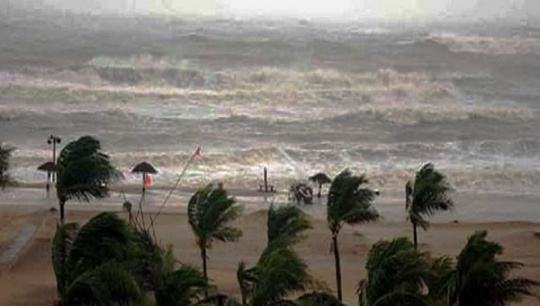Port Blair, Dec 8: Around 1,400 tourists are stranded at Havelock and Neil islands in the Andamans after heavy rain and "cyclonic weather conditions", which are a challenge to evacuation efforts. Home Minister Rajnath Singh said on Thursday that everyone is safe and appealed to families of the tourists not to panic.

"The government will launch the rescue operations immediately after the intensity of the cyclone reduces. The teams are ready in Port Blair," Mr Singh tweeted.
All the tourists who are stranded in Havelock Island are safe. The government has made all the preparations to evacuate them.
— Rajnath Singh (@rajnathsingh) December 8, 2016
The navy has sent four ships, Bitra, Bangaram, Kumbhir and LCU 38, for evacuation but they couldn't dock yesterday because of the weather. Officials said waves up to 5 m high have made the transfer of tourists onto the ships a very difficult and dangerous prospect.
"The ships are waiting outside the harbour. Adequate food, fresh water, medicines and doctors besides divers and local administration personnel are being ferried on board to provide relief," a Defence official said.
The two islands, around 40 km from Port Blair, have been hit the most by the cyclonic conditions caused by a severe depression over the Bay of Bengal, which led to heavy rain, strong winds and a rough sea.
The administration has declared an 'L1 Disaster'.
Neil and Havelock are two of the most popular tourist attractions in the Andamans and the only mode of travel are commercial ferries and choppers, but these have stopped operating since Monday.
Ten villages of Havelock and Neil islands are also badly affected as essential supplies have been hit.
Andaman administration officials said trees have been uprooted, power supply has been disrupted and low-lying areas in Port Blair have been flooded.
Mobile and internet connectivity have also snapped in many areas.





Comments
Add new comment